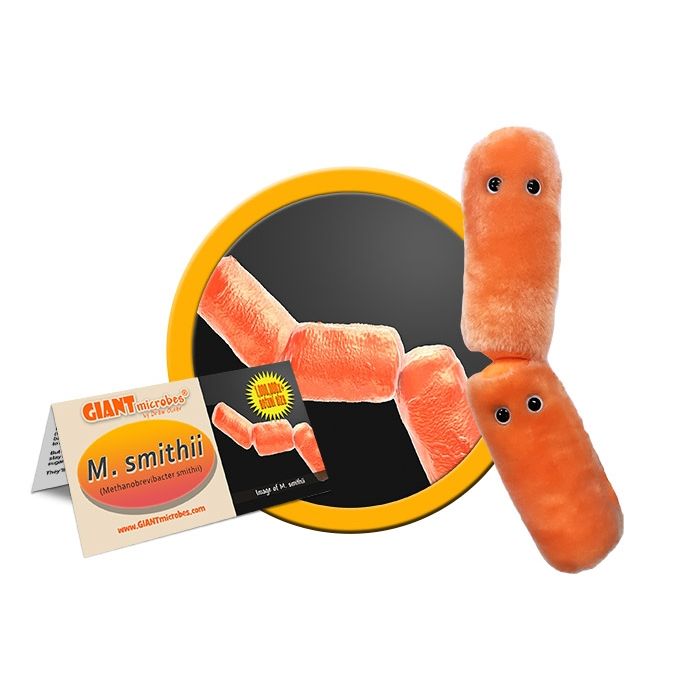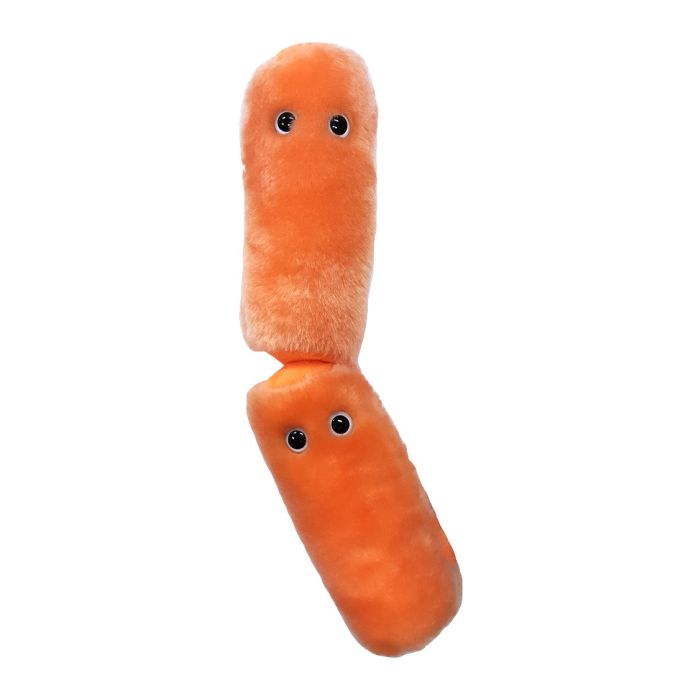M. smithii (Methanobrevibacter smithii)
Out of Stock
Product Details
Additional Information
| Sizes | Giantmicrobes are based on actual microbes, cells, organisms and other critters, only 1,000,000 times actual size! Gigantic (GG) 40-60cm XL (XL) 25-38cm Original (PD) 12-20cm Minis (MM) 5-10cm each Keychain (KC) 5-10cm with clip |
|---|---|
| Materials | Plush from all new materials. Stuffed with polyester fiber fill. Surface washable: sponge with water & soap, air dry. |
| Packaging | Each plush microbe includes a printed card with fun, educational and fascinating facts about the actual microbe or cell. |
| Safety | Every product meets or exceeds U.S. and European standards for safety. For ages 3 and up. |
All about M. smithii (Methanobrevibacter smithii)
FACTS: Methanobrevibacter smithii is a common and important microbe found in the human gut. M. smithii helps us more efficiently digest complex sugars. But unlike trillions of its neighbors in the colon, M. smithii is not a type of bacteria. Rather it is a totally different single-cell life form belonging to the domain archaea. They have no cell nucleus or other organelles. Archaea used to be classified as an unusual group of bacteria. But since archaea evolved independently and have a distinct biochemistry from bacteria and eukarya (such as animals, fungi and plants), they now stand on their own! Many archaea including M. smithii have not been well studied or classified.
M. smithii aids our digestion by consuming the end products of bacterial fermentation. It is a hydrogenotroph since it consumes hydrogen, as well as a methanogen since it produces methane. Yes, M. smithii gives you gas! But its role in human health is poorly understood. One fascinating area of M. smithii research involves therapies that manipulate the gut ecosystem to treat obesity, constipation, irritable bowel syndrome and eating disorders such as anorexia. Scientists are focusing on methane producing microbes like M. smithii since their presence increases fermentation in the colon, allowing the body to absorb more nutrients and calories. M. smithii seems to be quite a useful microbe, and it’s about time these amazing archaea get some recognition!





